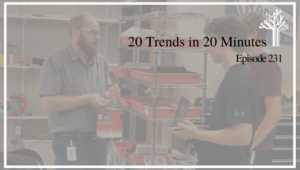Teachers: No More Excuses, Get Blogging

Douglas Frankish
Last week our tech integration team provided a group of 15 digital teachers with time set aside to begin working on a blog post. We met outside of school hours to share pedagogical practices and work toward school initiatives. The digital teacher group is a unique set of teachers who find affinity in geeking out over education and technology. Group norms were set at the beginning of the year, one of them being to exercise a growth mindset. However, it is this mindset that has been put to the test when it comes to a blogging initiative. While digital teachers have the drive to improve their practice, reflecting in the context of blogging is often met with resistance.
When asked why they haven’t started blogging, common responses were “I don’t have anything interesting to share.” “I don’t want to post anything online.” “I am not a good writer.” and most frequently, “I don’t have time.” Time is always an issue, but the other objections are not exactly exercising the growth mindset norm.
Simply asking any teacher about what they have been doing in their classroom lately, will rapidly spark conversations about projects being completed, units being developed, students making gains, and teachers who are learning from each other. Inevitably, conversations also swirl around frustrations over the way a lesson went, student behavior (the good and the not so good), or how improvements could be made to school policies. If you ask me, all of these topics are blog worthy.
As a member of a group of international educators who continuously enjoy learning, I feel we have a responsibility to not only consume and read what other teachers are doing, but to contribute to the online world of open educational resources- which is why I continue to nudge the blogging and sharing among our digital teachers. Therefore, here are my responses to the top three teacher reluctances.
- I don’t have anything interesting to share.
Teachers don’t often consider the practices they are conducting in their classrooms to be amazing. Yet common practice for one teacher might be extraordinary for another. Educators in locations with limited resources might need to read a post from a more developed school to learn about how their curriculum became established.
Schools who are ready to move beyond the traditional model of learning toward a more innovative approach, might be apprehensive. Those teachers may need to read the stories from teachers who are already experiencing it every day. A teacher who is struggling to find a strategy for that one student who just cannot make the jump to the next reading level, needs to have a place to look for information from experienced educators to provide them with that strategy. You might be the person who has that advice. Often when educators are in a school system that is running successfully day in and out, they may not recognize the structures in place that make that capable of happening. Step back and reflect, be mindful about what you might be able to share with someone else.
- I don’t want to post anything online.
We are in a stage in education when we are often asking students as young as second or third grade to begin creating their digital identity and post pieces of work in public online settings. We know what it means for students to have an authentic audience and how the feedback they receive is invaluable. We are asking students to be vulnerable in this setting by taking the risk of putting their created content on the web, yet some teachers aren’t practicing this themselves. Empathy is a buzzword for students these days, but I believe it can relate to teachers in this case. How can we ask students to publish publically if teachers are not willing to try it out as well. Not only would teachers posting online build empathy for students, but it also models what a positive digital footprint resembles.
- I’m not a good writer.
I can relate, however I ask those teachers, “Would you ever allow a student to say that to you?” Absolutely not, we would encourage them to continue to learn and push themselves. We need to lead by example, yes writing might not be a strength but that is not an excuse for not trying. The great thing about blogs, is you can always go back to posts and edit or revise them. Blogging also offers the opportunity to reflect on the pieces we have written and to witness our own growth not only as an educator but as a writer. No matter how much or little experience you have as a writer, there is always room for growth.
Every teacher has a unique voice and different set of experiences. Whether someone is in their first year of teaching or their twentieth, they have something to share and offer the educator standing beside them or who is on the other side of the world searching for that story. Carve out some time in your day, reflect, build the courage to put yourself out there, and jot down a few notes. It’s time to get started.
For more on blogging see:
- Blogging is Alive and Well for Leaders, Learners and Lead Generators
- 10 Tips for Starting Your Blog
- How Teachers Use Paper Blogging to Promote Student Voice
Doug Frankish is an Elementary Technology Integration Specialist at the American School Foundation of Monterrey, in Mexico. He is a graduate of Michigan State University’s Masters of Arts in Educational Technology Overseas Program. Follow him on Twitter @dougfrankish.






Brian Hamm
Great article and thank you for challenging educators to create and contribute.